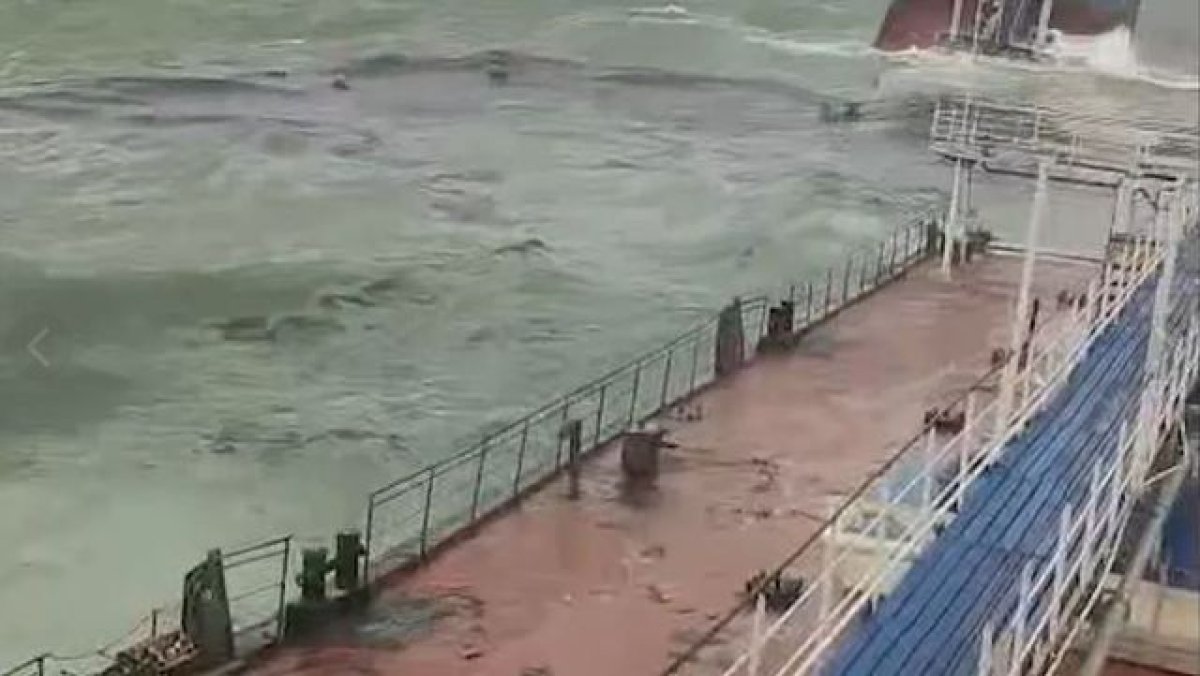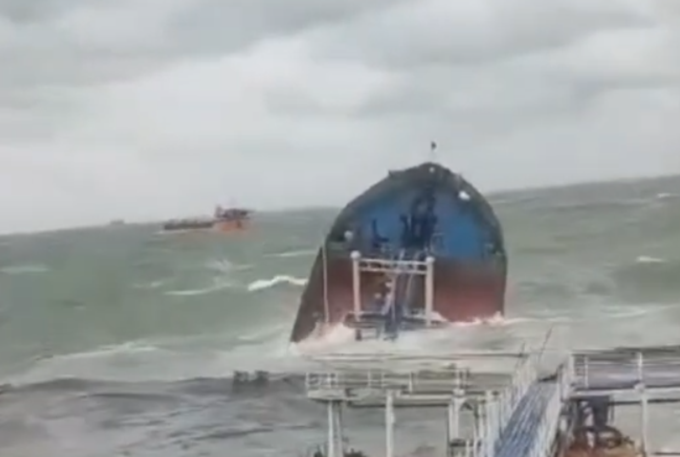The accident involving two Russian tankers, "Volgoneft," which split in half on December 15, caused a spill of Russian oil products in the Kerch Strait and could lead to an environmental catastrophe in the Black Sea, Greenpeace reports in a comment to DW.
One of the main versions of the tanker crash is "crew error" in challenging weather conditions, Interfax reports.
As a result of the tanker crash, there was a "spill of oil products." The Baza channel reports that both ships were carrying over 8,000 tons of oil and fuel oil in total. Official authorities have not yet commented on the potential consequences of the oil spill in the sea. The statement also mentions that the Russian tankers had turned off their positioning systems 12 days ago.
"If such an amount of oil enters the sea, it could lead to one of the largest catastrophes in the Black Sea area," Greenpeace says.
Experts estimate that about four thousand tons of fuel oil have already entered the sea. Russia is urged to take measures to minimize the ecological damage.

The environmental organization has called on Russian authorities "to make every effort to mitigate or reduce the impact on the environment." Greenpeace notes that in November 2007, another Russian tanker of the "Volgoneft" class sank in the same location. The vessel was carrying 4,800 tons of fuel oil, of which around 1,600 tons spilled into the sea.
"This accident led to the pollution of dozens of kilometers of coastline on both sides of the strait," the statement reads.
The ships that crashed were built in the 1980s. They were designed as river tankers with limited capabilities for coastal maritime zones under calm weather conditions, but were later converted into the "river-sea" class in the 1990s. It is estimated that the storm could have created excessive pressure, causing the hulls to simply fail. According to statistics, over the last 30 years, 1,097 people working on such tankers have died.




















